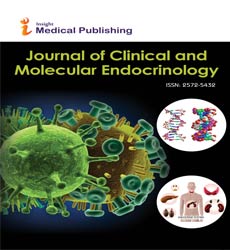Abstract
Anxiety and Depression in Diabetic Patients According to the Hospital Anxiety and Depression Scale (HADS) Scoring
Objective: This study primarily aimed to evaluate the distribution of depression and anxiety in patients with type 1 and type 2 diabetes mellitus (DM) using the Hospital Anxiety and Depression Scale (HADS) and to compare the obtained results with specific demographic, metabolic, and anthropometric parameters.
Methods: A total of 193 participants were included—52 had type 1 DM (females, 35; males, 17), 86 had type 2 DM (females, 47; males, 39), and 55 were controls (females, 34; males, 21). Depression, anxiety, and anxiety+depression in these patients were evaluated according to the HADS. Data on fasting blood glucose, hemoglobin A1C (HbA1c), triglyceride, total cholesterol, low-density lipoprotein (LDL), high-density lipoprotein (HDL), aspartate aminotransferase (AST), alanine aminotransferase (ALT), albumin, urea, and creatinine levels were evaluated for each patient.
Results: Depression and anxiety scores were significantly higher in patients with type 2 DM than in patients with type 1 DM. In addition, depression, anxiety, and anxiety +depression were higher in females in both types 1 and 2 DM. Moreover, there was a positive correlation between depression and anxiety scores and HbA1c.
Conclusion: Thus, performing psychiatric treatment in addition to diabetic treatment might increase patients’ quality of life and social adaptation.
Author(s): Kader Ugur, Gozde Ozkan, Ahmet Karatas, Burak Oz, Abdullah Mubin Ozercan, AAbrahim Sahin, Suleyman Aydin and Mustafa Ulas
Abstract | Full-Text | PDF
Share this

Google scholar citation report
Citations : 120
Journal of Clinical and Molecular Endocrinology received 120 citations as per google scholar report
Abstracted/Indexed in
- Google Scholar
- China National Knowledge Infrastructure (CNKI)
- Publons
- Secret Search Engine Labs
Open Access Journals
- Aquaculture & Veterinary Science
- Chemistry & Chemical Sciences
- Clinical Sciences
- Engineering
- General Science
- Genetics & Molecular Biology
- Health Care & Nursing
- Immunology & Microbiology
- Materials Science
- Mathematics & Physics
- Medical Sciences
- Neurology & Psychiatry
- Oncology & Cancer Science
- Pharmaceutical Sciences

